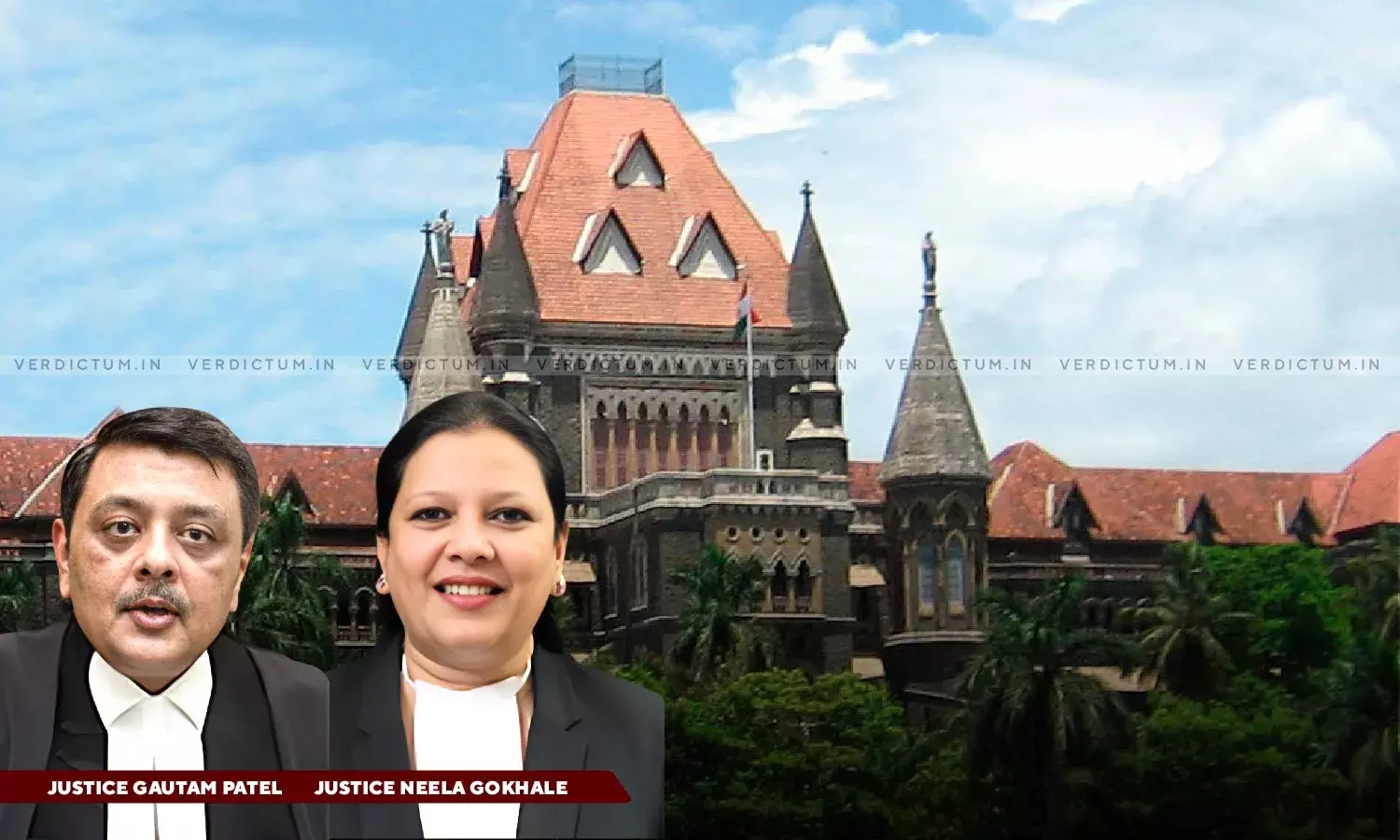"Legal System Would Be Brought To Its Knees"- Bombay HC Criticizes Practice Of Filing Complaints With BCI To Intimidate Opposing Counsel; Quashes Misconduct Case

A Bombay High Court Bench of Justice GS Patel and Justice Neela Gokhale has taken note of the unfortunate trend where litigants on one side routinely file complaints with the Bar Council against the advocates of the opposing party, and has said that "That is a practice to be deprecated in all circumstances. Advocates for the opposite side have a duty to their own clients. They have a duty to the Court, like all advocates do. They have no duty to propound the case of the opposing party. This constant threat of the disciplinary complaints against the opposing counsel is actually being used in several matters that have come before us to intimidate and browbeat opposing counsel, and to ensure that the opponent does not get adequate or proper legal representation."
The case revolved around an order issued by a BCMG advocate member on September 20, 2022, which referred to a disciplinary matter for investigation. The accusation against the petitioner, Ms. Geeta Shastri, involved alleged misconduct for inaccurately identifying annexures in an affidavit. Notably, Ms. Shastri wasn't the advocate-on-record but had simply confirmed the deponent's identity.
The Court observed, "No Advocate-on-Record would ever sign anything, and without an Advocate-on-Record, we would not have counsel’s assistance in a single matter. On this one proposition the entire judicial system in this country would be brought to its knees."
The Court observed that the interest of the advocates should not be compromised, and said that, "The consequences of such action on the lives and careers of advocates and the attendant emotional and mental trauma are almost indescribable."
The Court also expressed concern over the consequences of such complaints. In that context, it was said that it "would inevitably result in the emptying of almost the entire legal profession. No Advocateon-Record would ever sign anything, and without an Advocate-onRecord, we would not have counsel’s assistance in a single matter. On this one proposition the entire judicial system in this country would be brought to its knees."
Counsel Vishal Kanad appeared for the petitioner, while Counsel Makrand Bakore, Counsel NR Pradhan, and Counsel Shekhar Jagtap appeared for the respondents.
The petitioner was a practicing advocate in the High Court. The first respondent was the Bar Council of Maharashtra and Goa (BCMG), and the second respondent (Bhakad) was an individual whose ongoing litigation had been transferred from the High Court to the City Civil Court. The third respondent, added later, was the Bar Council of India.
The petitioner argued that her identification of the signature didn't imply endorsement of the affidavit's accuracy, especially as she wasn't the advocate-on-record. She warned that adopting the complainant's view might discourage advocates from identifying signatures, potentially undermining legal processes.
On the other hand, the respondents asserted that the petitioner's signature identification indicated her endorsement of the affidavit's accuracy. By identifying the signature, she assumed personal liability for any falsehoods or inaccuracies in the affidavit, including allegations of perjury, forgery, and misconduct.
The Court observed that Bhakad had taken the case to an absurd and untenable extent. In that context, the Court noted that, "Nothing in Order 19 Rule 3 of the Code of Civil Procedure, 1908 (“CPC”) persuades us to accept this extreme a proposition. That Rule clearly says that Affidavits are to be confined to such facts as the deponent is able of his own knowledge to prove. Ms Shastri was not the deponent of the Affidavit in Support of the Chamber Summons. The principal of the college was. The matters, statements and assertions in that Affidavit in Support of the Chamber Summons may have been within the personal knowledge of the deponent within the meaning of Section 106 of the Indian Evidence Act, 1872. By no stretch of the imagination could they have been said to be to the personal knowledge of the Advocate-on-Record. And Ms Shastri was not even the Advocate-on-Record. She merely identified the deponent of that Affidavit."
Seeing no merit in the complaint, the Court dismissed the same. The council for Ms. Shastri had been given instructions that she had no intentions of pressing costs in such a matter. In that context, the Court said that, "We appreciate that. In itself, this speaks to some of the best traditions of this Bar on both its Original and Appellate Sides."
Cause Title: Geeta Ramanugrah Shastri v. Bar Council of Maharashtra and Goa & Ors.
Click here to read/download the Judgment

